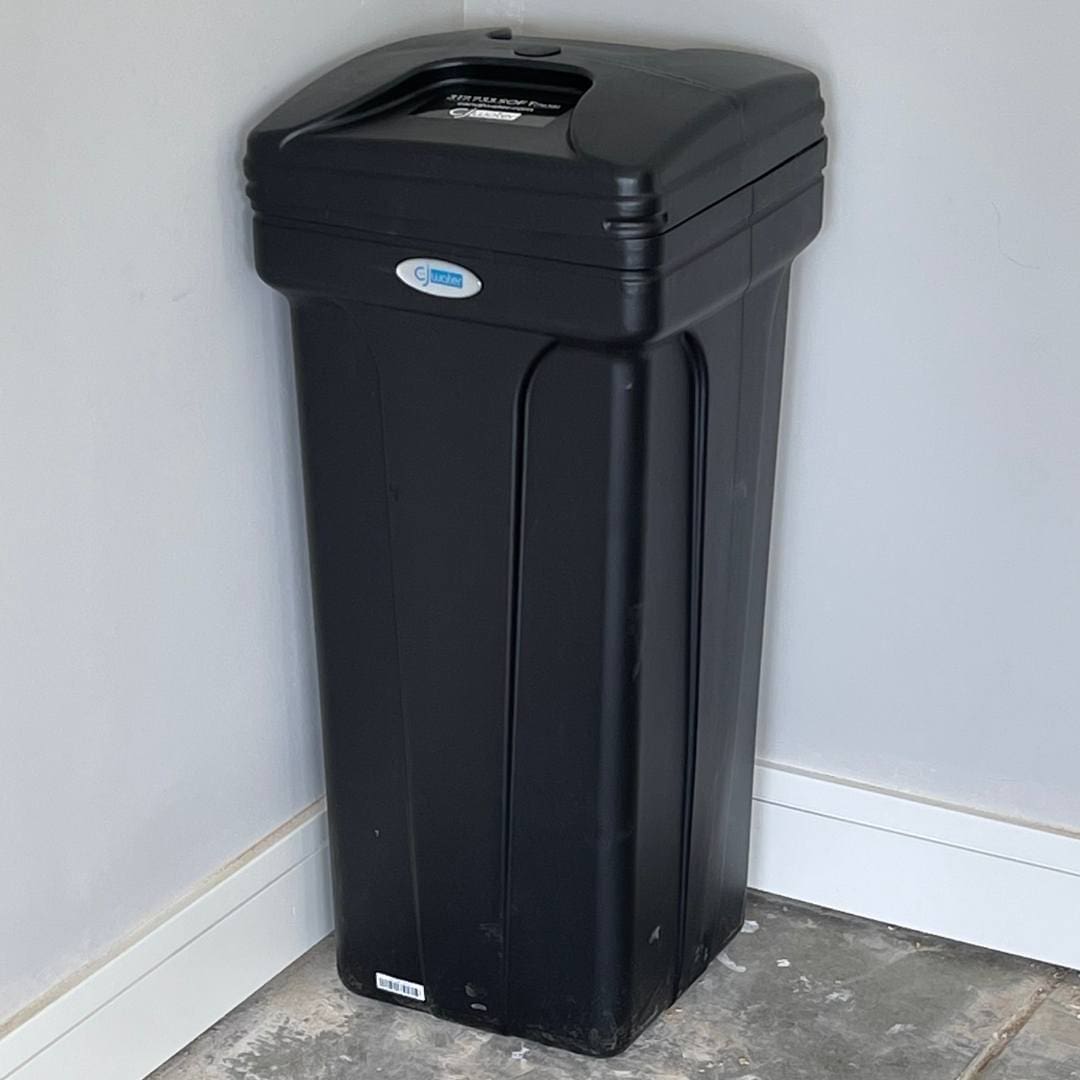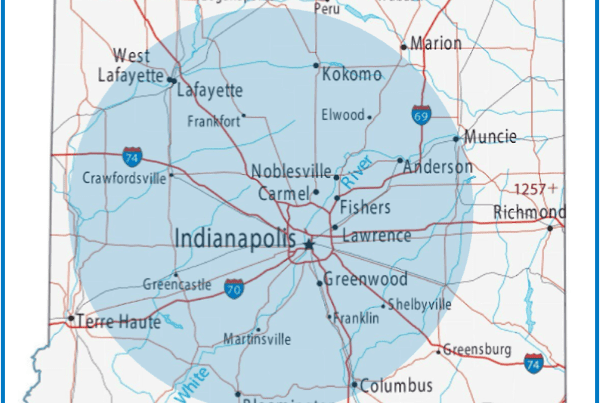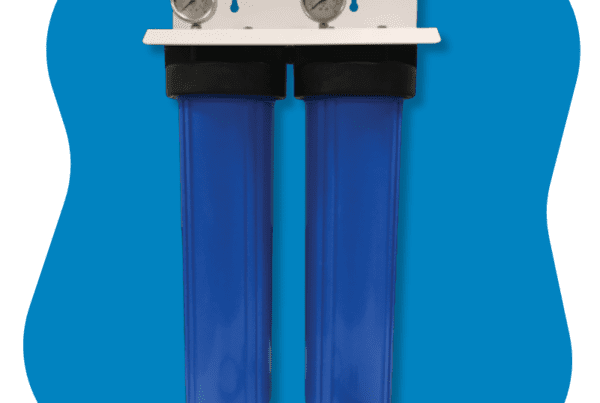Is it Time to Replace Your Water Softener?
At C and J Water we are often called to inspect and repair water softeners made by other manufacturers. While we can usually fix various makes and models, we often get asked if it is time to replace the softener altogether. We know purchasing a new water softener system can a large initial purchase, so we made this handy guide to inform Central Indiana homeowners on when they should consider a replacement instead of another repair.
Sign, Sign, Everywhere a Sign
If you are having issues with your water softener, it’s time to examine whether it should be replaced or serviced. Symptoms of needing to change the salt in your softener are similar to those of when a softener needs replacing. Typical signs to watch for include a changing taste of your water or noticeable scale buildup on your faucets. Immediate signs of hard water that reveal trouble with your water softener include:
- Soap not lathering
- Clothes feeling rough or appear dingy after laundry
- Spots or streaks on dishes or glassware
- Dull, lifeless hair or dry, itchy skin
- Soap scum on the shower, tub, and other surfaces
Any time that your water develops a strange or off-putting taste, it’s a sign that something is wrong with your water. In some cases it could mean that chemicals or contaminants are present, and in other cases it might mean that it’s time for you to replace your water softener. Hard water has higher mineral content, so it actually tastes different from softened water. Any taste changes that you detect mean that you should have your water tested by a water treatment expert like C and J Water. Through careful and thorough water testing, we’ll be able to pinpoint if your water softener should be replaced or if the problem is something else, like a compound or contaminant that was not there before entering your drinking water supply.
 Repair or Replace?
Repair or Replace?
Like any home appliance, your water softener requires regular maintenance to continue operating at peak performance. This is especially true because water is constantly running through the system, which can lead to a buildup of rust and other types of residue if not cleaned and serviced regularly.
Though a water softener professional will need to service your system on a regular schedule, there are other things you can do yourself to keep your water softener working well. Sometimes just regularly checking things like salt and water levels is enough to spot and troubleshoot any issues. In other cases, taking the time to clean or replace certain system parts before they cause serious issues will save you money and hassle in the long run. Here are some things you can do before making the leap and purchasing a brand new softener:
Check your system’s salt levels—If your salt level is too low, your water softener won’t have what it needs to perform this process. The result is hard water that leaves chalky white residue on fixtures and leaves skin and hair feeling sticky and dry.
Clean your brine tank—recommend cleaning your brine tank once per year. Otherwise, salt can form clumps or sludge and reduce the effectiveness of your softener’s regeneration process. If your water has high levels of iron or sediment, you may need to clean your brine tank more often.
Eliminate salt bridges—A salt bridge is a crusty buildup of salt residue that collects in the tank of your water softener. When a salt bridge forms, the salt will not dissolve in the water to form brine. Without the brine, resin does not regenerate properly, so the water does not get softened. A salt bridge forms in high humidity or from using low-quality salt. You can usually break up a salt bridge with a broomstick or by pouring warm water into the tank, but if you notice salt bridges happening frequently, there could be an underlying issue with your water softener that requires professional assistance.
Replace your softener resin—Resin is a crucial element of your water softener’s operation since it allows ion exchange to take place. Though resin is usually designed to last the duration of a water softener’s lifetime (around 10 to 15 years) high levels of iron and chlorine can sometimes break down resin faster than usual. You can replace the resin yourself, but a professional will probably be able to do it much faster.
Change the brand/type of salt—Only use high quality salt designed for use in water softeners. Other types of salt will have a high level of insoluble impurities that could build up and clog your system. High-purity salt costs more than other types of salt, but the investment is worth it to protect the longevity of your water softener. We recommend using Diamond Crystal brand Solar Naturals or Super Soft Crystals.
Add a Prefilter—If your water has sediment, iron, sand, clay or other substances—commonly found in well water or tap water in certain areas throughout the country—your water softener could become clogged or damaged. A prefilter removes these contaminants from your water supply before it reaches your water softener and remains effective for six to nine months before needing a replacement.
Time to Bite the Bullet?
A water softener has a lifespan, just like any other appliance. With regular care and maintenance, including cleaning the device’s brine tank once a year, a water softening system can last up to 15 years. If you are still having issues with the unit or your home’s water, and you’ve taken the aforementioned steps to ensure you are using the correct type of salt, the unit’s hardness settings are accurate, and your brine tank is clean, it might be time to replace your water softening equipment.
Changes to your family—larger or smaller—can also be a deciding factor in updating your water softening equipment. Because a water softener must meet the needs of you and your home, it’s size is determined on your household water consumption and the degree of water hardness. If your family size changes you may want to consider changing your unit out to ensure you aren’t wasting money.
Also, the latest water softening technology is more efficient and environmentally friendly. Maybe your unit is working correctly but is nearing, or past, its lifespan. A new water softener may be necessary. Updates in technology and greater efficiency can provide you with the latest state-of-the-art system that requires less water to operate.
Some water softener maintenance issues are best left to professionals. Regular professional maintenance will help reduce issues so your system provides the soft water you need. If you need help troubleshooting water softener issues or think you are ready to upgrade your current equipment, contact the experts at C and J Water for help servicing or replacing your water softener.




